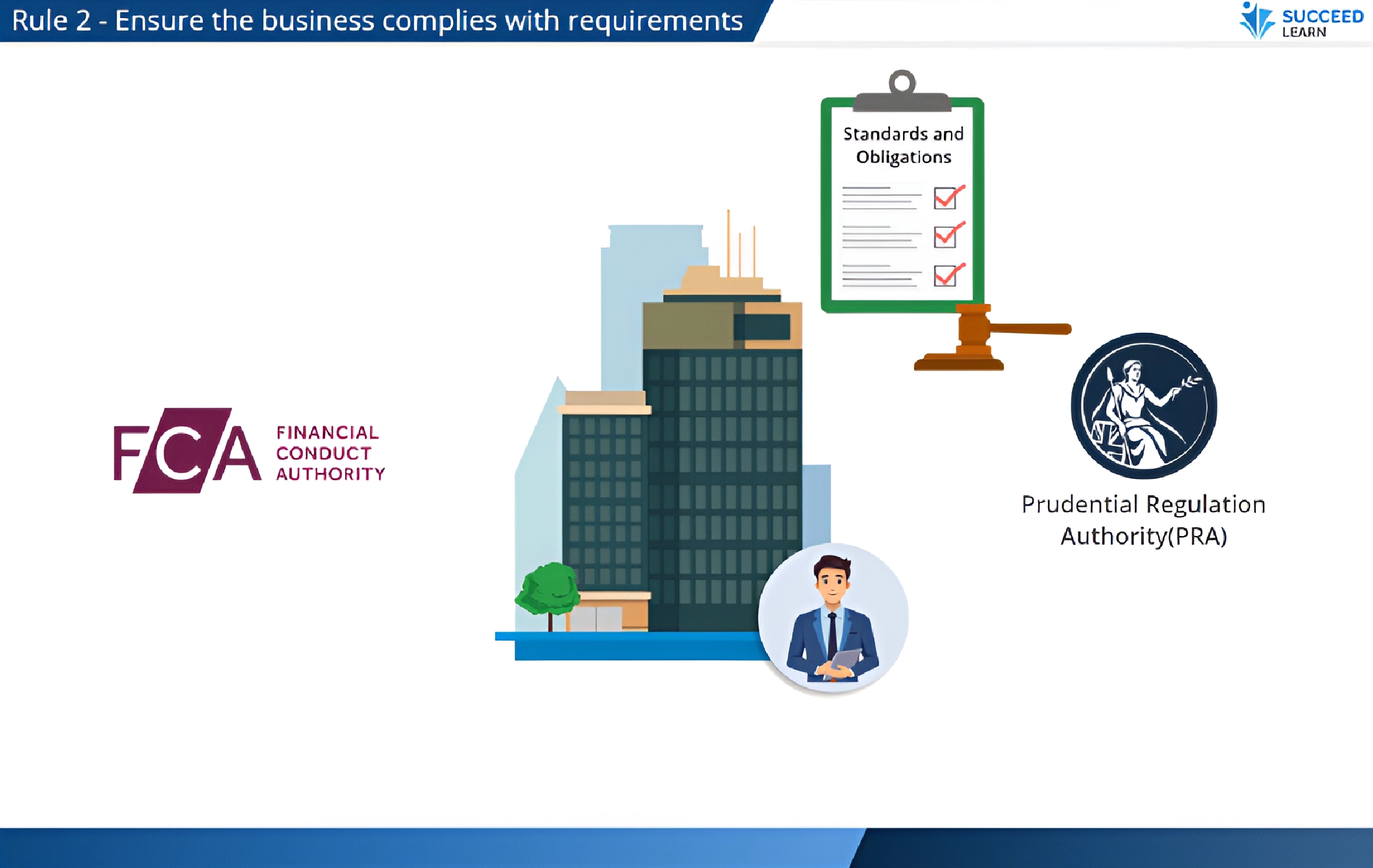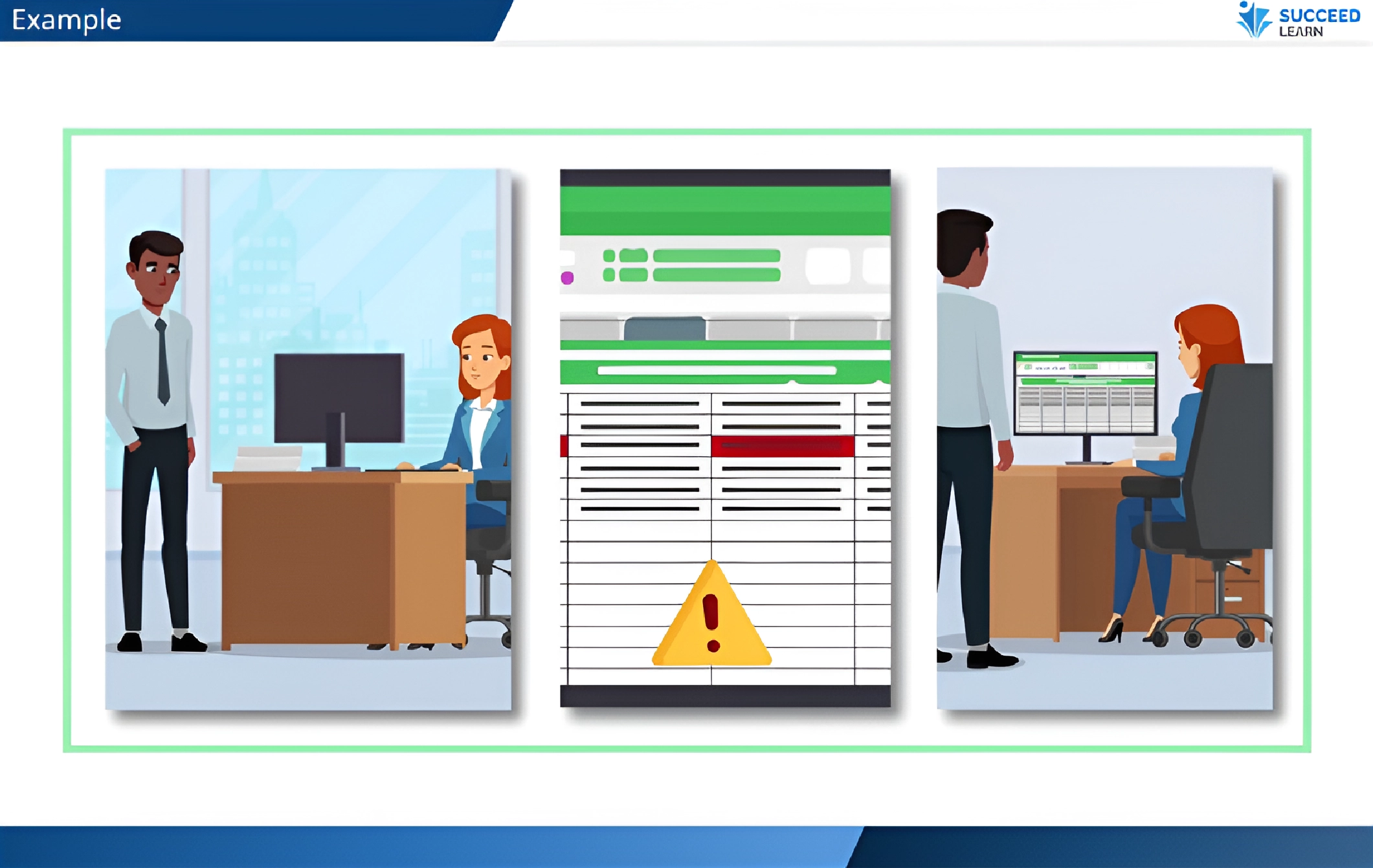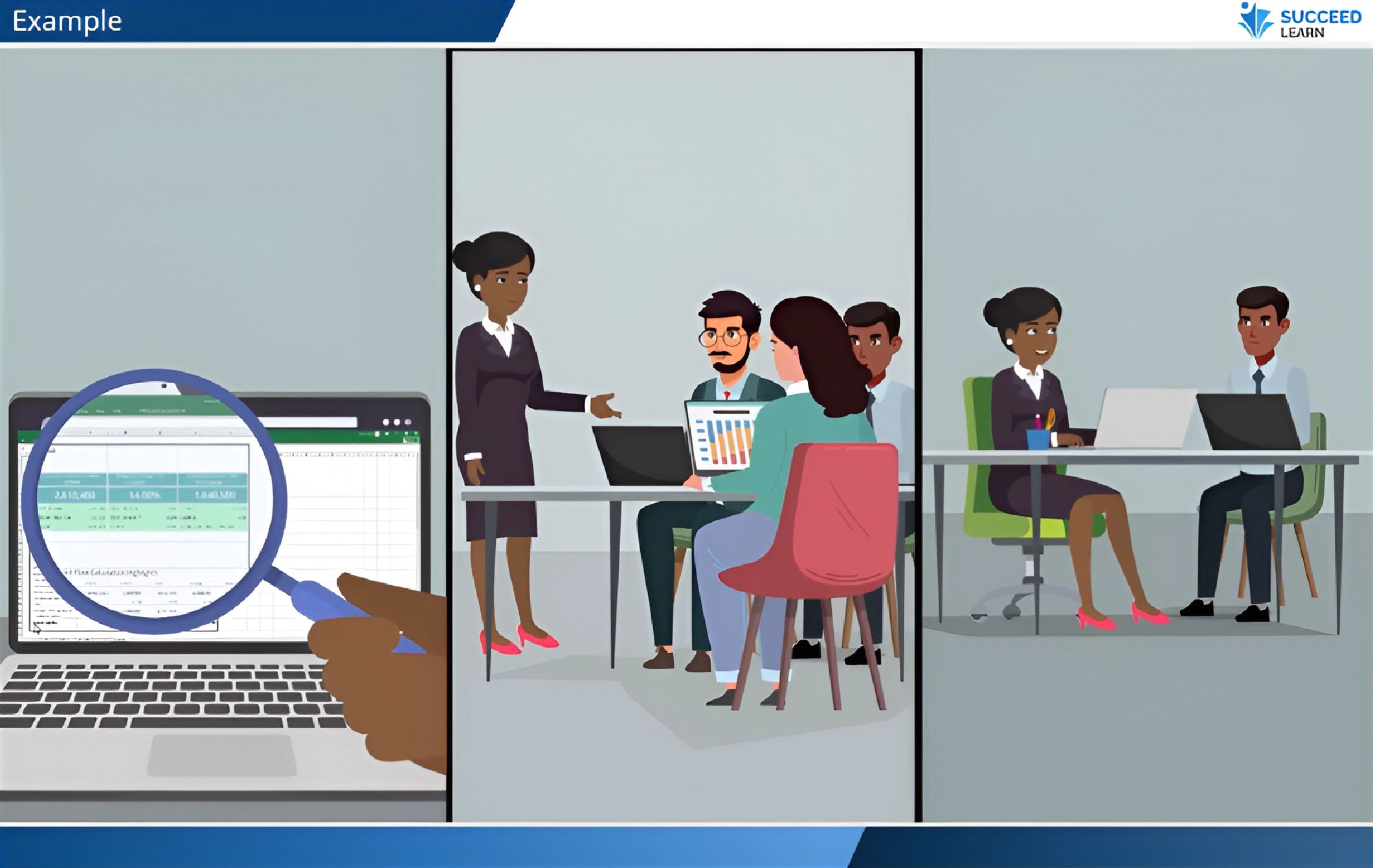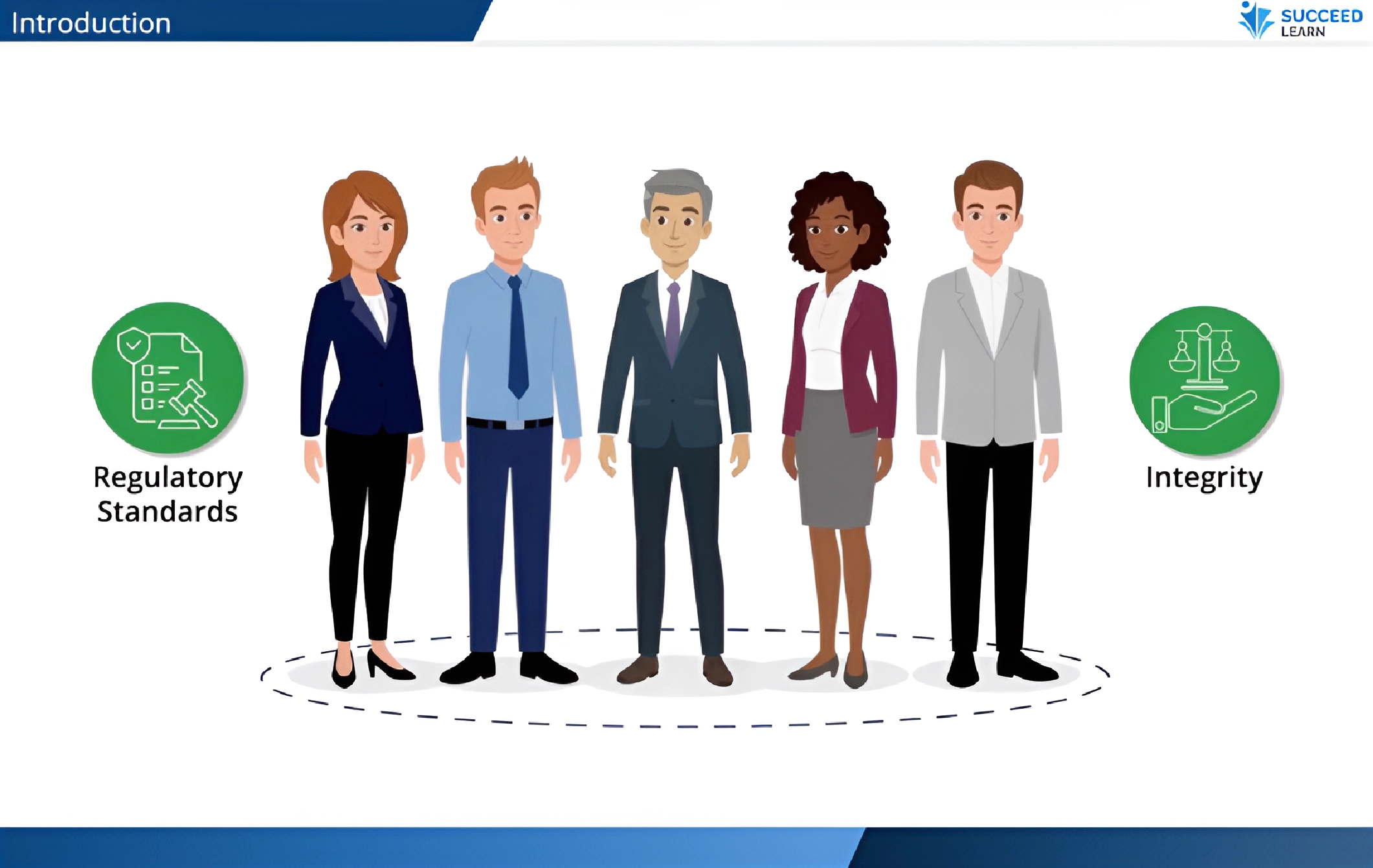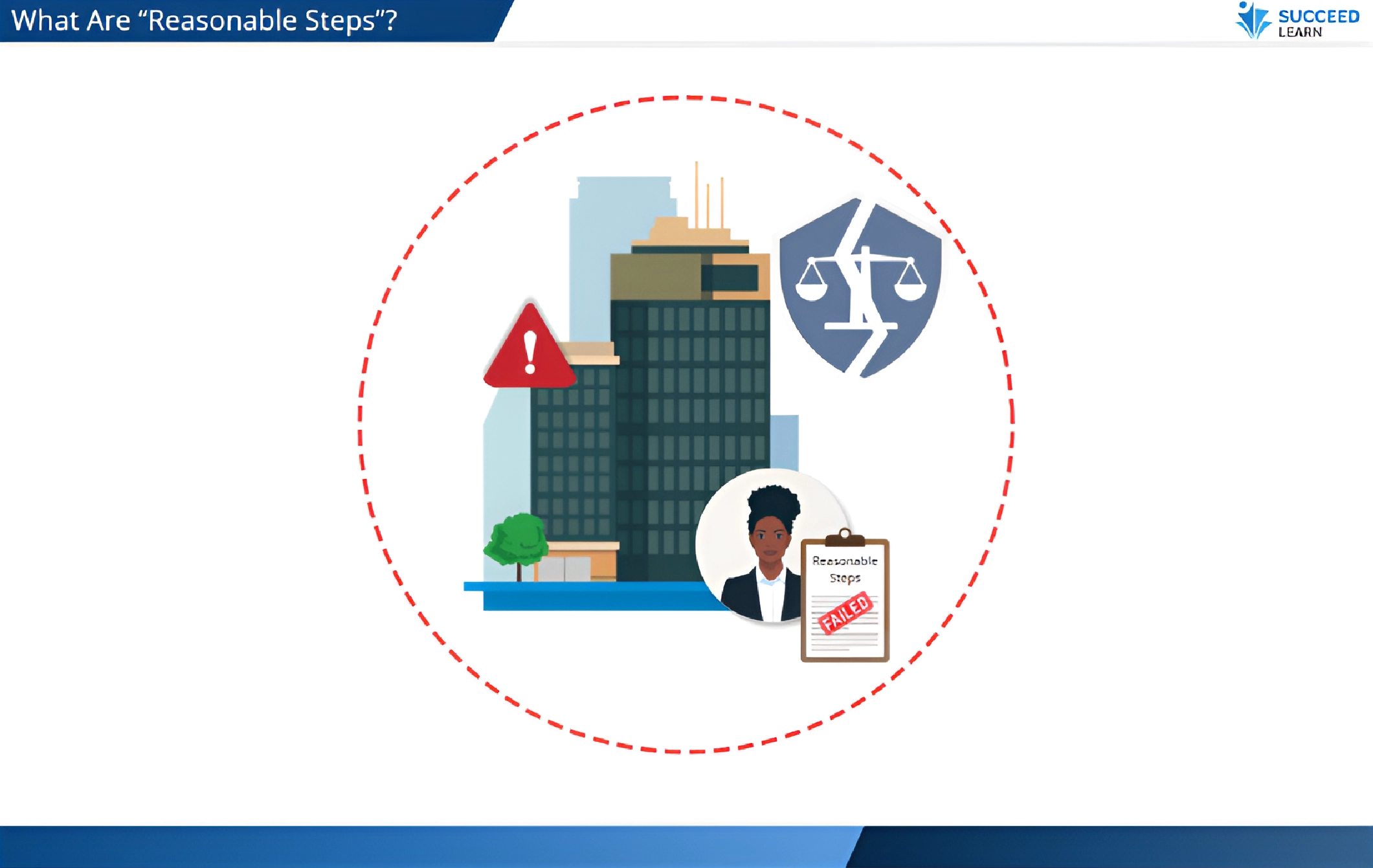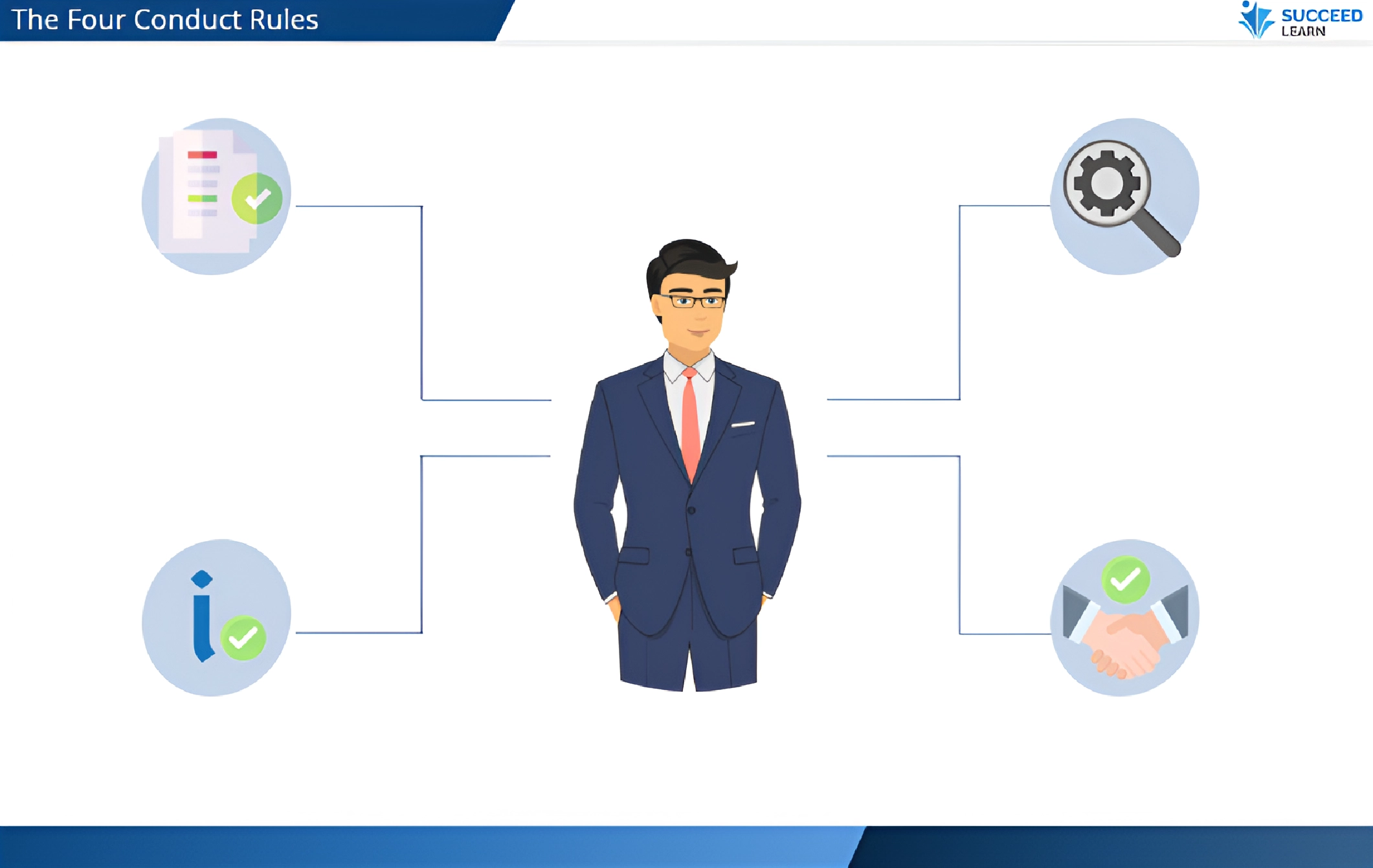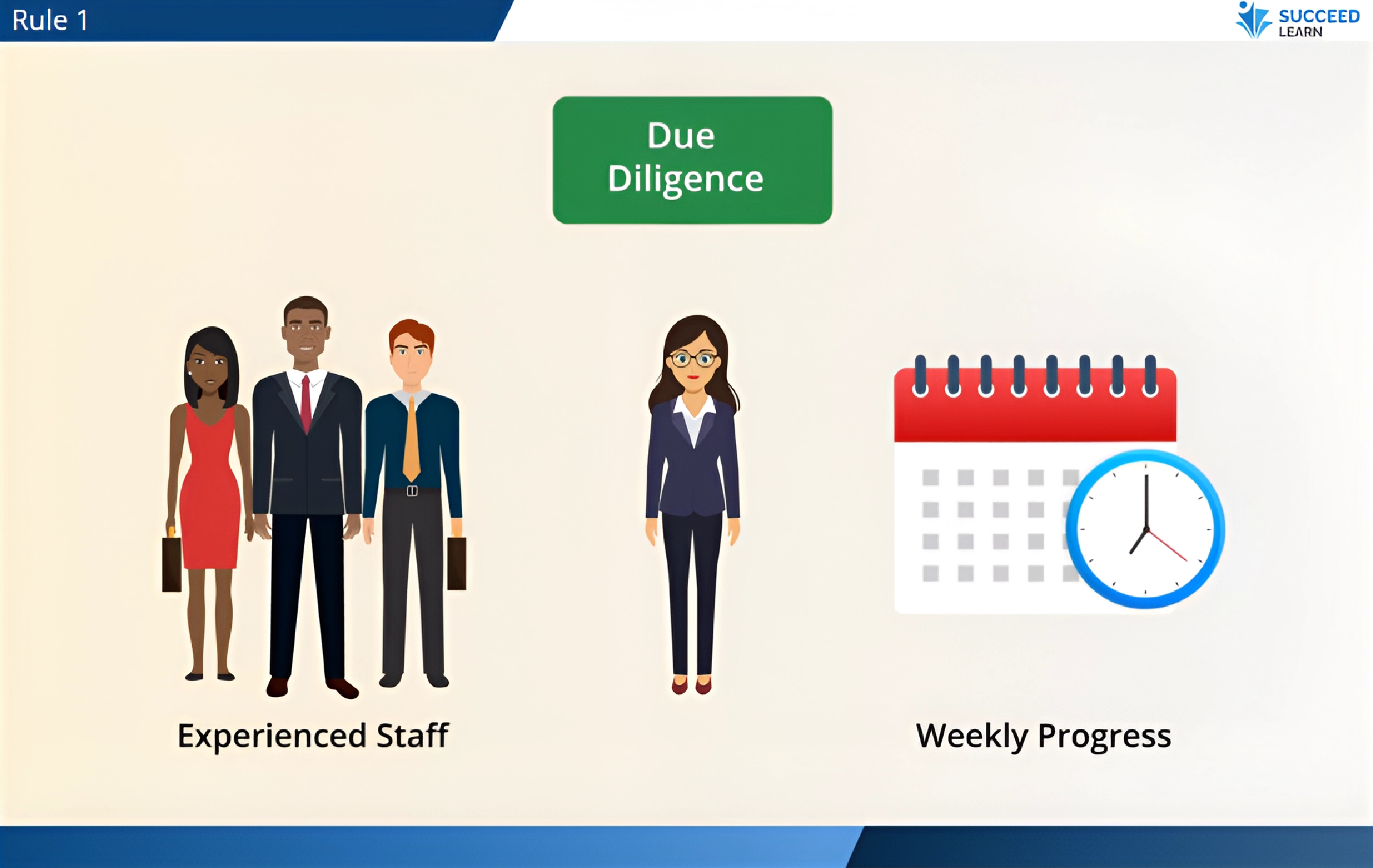- Engaging animated explainers
- Clear, voice-guided slide modules
- Interactive, scenario-driven activities
- Realistic workplace examples woven throughout
- Frequent knowledge checks to strengthen retention
- Final assessment with a completion certificate
Learning Objectives
By the end of SMCR Senior Managers training, learners will be able to
- Understand the four additional Conduct Rules for Senior Managers under SMCR.
- Identify what taking “reasonable steps” means in common oversight situations.
- Apply these rules through practical, PEVC-relevant scenarios
- Document and update evidence of your oversight actions.
Why SMCR Senior Managers eLearning Training?
Ensures leaders understand their prescribed responsibilities
Helps leaders in delegating only to individuals with the competence, capacity, and resources to deliver the responsibilities and then overseeing them ensuring decisions align with the firm’s wider organisational and regulatory objectives.
Prevents costly misconduct
Equips leaders to spot gaps in oversight or internal controls early and helps them in recognising emerging risks, questionable behaviours, or process failures before they escalate into regulatory breaches.
Demonstrates Compliance
Ensures a Senior Manager discloses any issue that could materially affect the firm’s compliance, market integrity, or investor outcomes, appropriately, even if the regulator such as FCA has not explicitly asked for it.
Improves cross-department governance
Ensures all leaders follow the same compliance framework, creating consistent standards and better coordination across the firm.
Recordkeeping and Regulatory Interactions
Helps senior leaders maintain clear audit trails, document the rationale behind key decisions, and keep thorough oversight records, including meeting minutes. Also ensures they respond promptly to Compliance and regulators while fostering a culture where their teams proactively escalate risks and issues.
Reduces personal liability exposure
Helps senior leaders clearly understand their “reasonable steps” obligations and how to evidence them. When Senior Managers know exactly what regulators expect, they are better equipped to demonstrate compliance if issues arise, significantly lowering the risk of personal fines, bans, or enforcement action.
Easy integration with any LMS and strong audit-ready reporting
Employers benefit from simple tracking, completion reports, and documentation to satisfy internal or regulatory review requirements.
Laws & Regulations Addressed in This Course
| Legislation / Concept | Relevance in the Course |
|---|---|
| The FCA’s Four Conduct Rules | FCA has Six Conduct Rules set out in the Code of Conduct Sourcebook (COCON) that are applicable to employees. SMCR has four additional rules for Senior Managers. The course helps Senior Managers understand how to apply the FCA Conduct Rules by translating each rule into practical, real-world responsibilities and showing how they should guide daily decisions, oversight, and regulatory interactions. |
Course Structure
Learning elements
Format & accessibility
The platform features a fully responsive design for desktop, tablet, and mobile, and includes a learner dashboard, progress tracking, automated reminders, and smooth integration with your existing systems.
Certificate
On successful completion and passing the assessment, learners can generate a completion certificate as proof of training (configurable per org).
Target Audience
The SMCR Employees eLearning Course is ideal for Senior Managers across all FCA-regulated sectors such as Banking and Building Societies, Credit Unions, Investment Firms and Asset Management, Insurance and Reinsurance Firms, compliance and supervisory roles who may, directly or indirectly, influence or transact in situations involving securities or funds. It is tailored for:
- Senior Manager Function (SMF) holders
- Executive leaders and board members (including NEDs)
- Heads of key functions like Risk, Compliance, Operations, Finance, and IT
- Leaders preparing for Senior Manager roles
- Senior decision-makers in FCA-regulated firms
Case Studies: Real Consequences of Non-Compliance
The following real-world cases show how firms were penalised for governance and integrity failures, demonstrating that inadequate understanding of SMCR responsibilities - which effective Senior Managers training is designed to address - can lead to significant regulatory consequences and reputational damage:
- Citigroup Global Markets Limited (CGML) was fined £27.7 million after weaknesses in its trading systems and controls allowed major erroneous orders to be placed, highlighting the need for strong oversight and precise operational safeguards as emphasized in this article - FCA fines CGML £27,766,200 for failures in its trading systems and controls | FCA
- TSB Bank – SMF was fined with £81,620 (reduced from £116,600) for IT migration failure. Carlos Abarca, former Chief Information Officer (SMF18) was penalised for the following reasons:
- Failed to take reasonable steps when overseeing the bank’s 2018 IT migration
- Over-reliance on third-party assurances
- Insufficient challenge, testing, and risk assessment
Course Outline
Your Designation Under SMCR
What Are “Reasonable Steps”?
The Four Conduct Rules for Senior Managers
- Rule 1: Take reasonable steps to ensure the business of the firm is controlled effectively
- Rule 2: Take reasonable steps to ensure the business complies with relevant requirements
- Rule 3: Take reasonable steps to oversee delegated responsibilities effectively
- Rule 4: You must disclose appropriately any information of which the FCA or PRA would reasonably expect notice.
Scenario: Different scenarios explaining different rules.
Recap
Recordkeeping and Regulatory Interactions
Annual Attestation and Breach Reporting
FAQs
The Senior Managers and Certification Regime (SMCR) was introduced in the UK after the 2008 global financial crisis, following widespread governance failures and the public’s loss of trust in the financial sector. The Parliamentary Commission on Banking Standards (PCBS), set up in 2012, found that existing accountability rules were weak and allowed senior leaders to avoid personal responsibility for misconduct.
To address this, the UK government replaced the old Approved Persons Regime with SMCR, which officially came into force for banks in 2016 and was later extended to insurers and all FCA-regulated firms. The goal was simple: strengthen individual accountability, improve conduct, and ensure senior managers can be held directly responsible for the areas they oversee.
The FCA requires firms to ensure Senior Managers clearly understand their responsibilities, Conduct Rules, and the “reasonable steps” they must take. Proper training reduces regulatory risk and strengthens governance.
No, the FCA does not mandate eLearning specifically for Senior Managers.
However, the FCA does require that Senior Managers receive appropriate, role-specific training to understand:
- Their SMCR responsibilities
- The Conduct Rules (COCON 2.1 and 2.2)
- Their “reasonable steps” obligations
- Their prescribed responsibilities and areas of oversight
In line with this, the SMCR Senior Managers eLearning training provides consistent, documented, and auditable evidence of compliance.
It covers the Senior Managers Regime (SMR), Statements of Responsibilities, the Duty of Responsibility, Conduct Rules, reasonable steps, overseeing of delegated responsibilities, and disclosing appropriately any information of which the FCA or PRA would reasonably expect notice.
Training completion, assessments, and scenario-based learning provide tangible evidence that Senior Managers were properly equipped to fulfil their duties, something that is critical during FCA audits or investigations.
Employee training focuses on Conduct Rules. Senior Managers training is deeper, focusing on oversight, governance, delegation, challenge, and personal accountability under the SMR.
Anyone holding or preparing for an FCA Senior Management Function (SMF), including CEOs, directors, compliance heads, risk leaders, MLROs, and key function heads.
Yes. The content can be customised to reflect your Statements of Responsibilities, governance structure, and business-specific risks.
Typically 30 minutes, depending on customisation. A shorter or extended version can be provided based on your firm’s needs.
Annual SMCR assessments are the yearly reviews that firms must carry out to confirm that individuals performing Senior Management Functions (SMFs) and Certification Functions remain fit and proper, understand their responsibilities, and continue to meet regulatory standards.
It provides documented evidence of competency, strengthens your Fitness & Propriety reviews, and supports your annual certification cycle.
Lack of training increases the risk of oversight failures, regulatory breaches, financial penalties, and personal accountability under the Duty of Responsibility.
Yes. A completion certificate is generated automatically and can be used as proof during audits or regulatory reviews.
Yes. We can incorporate your internal policies, escalation frameworks, and real-world scenarios tailored to your environment.
The delivery is fully flexible. If you have an in-house LMS, we can provide the course as a SCORM-compliant package. If not, we offer a seamless SaaS-based hosting option for easy access and deployment.


